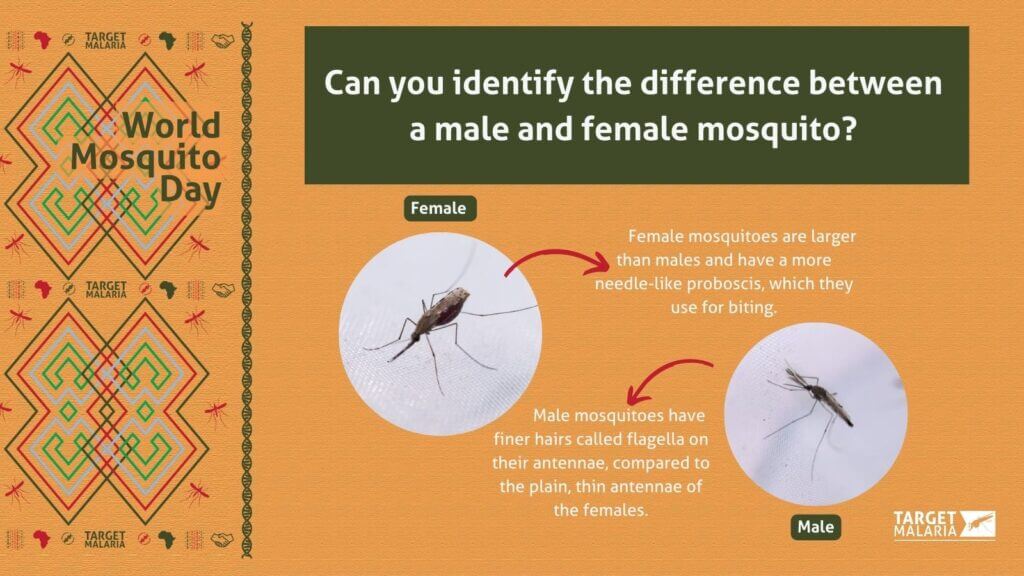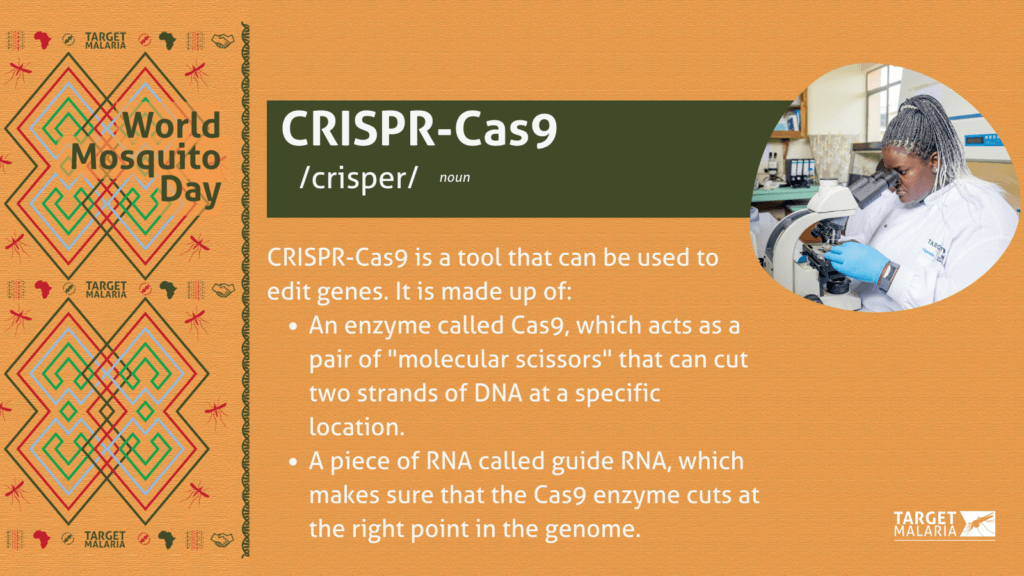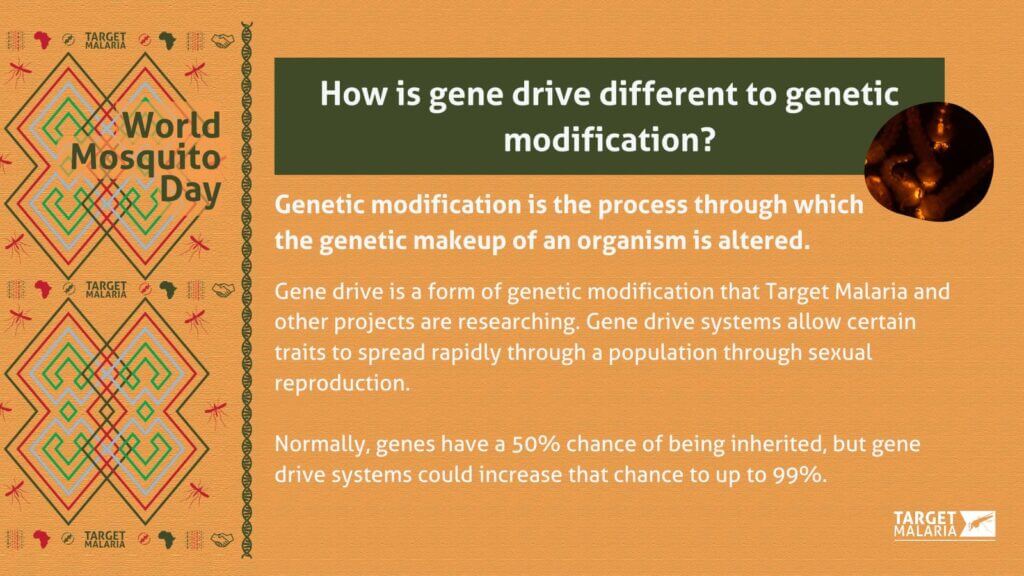World Mosquito Day: Target Malaria’s 2023 #MosquitoCountdown

This year for World Mosquito Day, Target Malaria conducted an educational campaign across social media focused on genetically modified mosquitoes, sharing posts from the 1st to the 20th of August (World Mosquito Day) on Target Malaria’s accounts across Twitter and LinkedIn. Posts used for the #MosquitoCountdown share key facts around mosquitoes, malaria, and how genetically modified mosquitoes are developed.

World Mosquito Day commemorates Sir Ronald Ross’s discovery in 1897 that linked mosquitoes to malaria transmission. The day serves as an important reminder of the impact that mosquitoes have on global health.
The purpose of the campaign was to demystify fears, questions and concerns around genetically modified mosquitoes, as well as to share broader information about mosquitoes and their role as vectors of malaria. We also wanted to take the opportunity to underscore the importance of malaria research, mosquito research, entomology and genetics.

Target Malaria’s research is investigating reducing the population of malaria-transmitting mosquitoes in sub-Saharan Africa, using a genetic technology called gene drive. By reducing the population of malaria mosquitoes, we aim to reduce the transmission of the disease, allowing people in affected areas to live without the burden of malaria and freeing up resources currently used to combat the disease.
Worldwide there are more than 3,500 species of mosquitoes, with 837 of those species are in Africa. Malaria is spread by the bite of female Anopheles mosquitoes. More than 500 Anopheles species have been described worldwide, and more than 30 are considered a public health problem but out of them 3 very closely related species are responsible for most transmission of malaria: Anopheles gambiae, Anopheles coluzzii and Anopheles arabiensis.
Our goal is a new vector control tool for malaria. To achieve this goal, we are developing a gene drive mosquito strain, in which the modification to the mosquito will be ‘self-sustaining’.

Gene drive is a genetic phenomenon that occurs in nature that biases inheritance. It causes a selected trait to spread rapidly through a species via sexual reproduction over several generations. Gene drive works by increasing the likelihood that a modified gene will be inherited by its offspring. Normally, genes have a 50/50 chance of being inherited, but gene drive systems could increase that chance to upwards of 99 percent. This means that over the course of several generations a selected trait could become increasingly common within a specific species. Gene drive research is still in its early stages, and at Target Malaria all our gene drive mosquitoes are currently being studied in laboratories in the UK, US and Italy.
We were pleased to use this campaign as an opportunity to demystify key scientific terms ranging from DNA and chromosome, to CRISPR, to insectary. We also shared videos showcasing our insectaries behind the scenes, and shared a blog (insert link when live) outlining how we genetically modify mosquitoes.
Continued research on mosquitoes and their behaviour is essential in the fight to end malaria. As mosquitoes become resistant to existing vector control tools, new innovations such as gene drive could play a key role in contributing to malaria elimination efforts.
